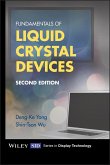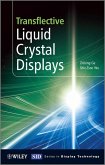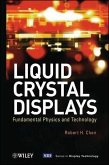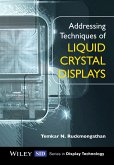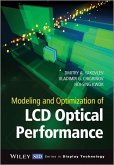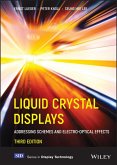From laptop computers and mobile phones to digital cinema, Liquid Crystal Displays (LCDs) are integral components in an increasing array of highly desirable consumer electronics and communication devices, and are already the predominant technology used in flat panel displays. This inter-disciplinary book is intended as an introductory guide to the fundamental properties of liquid crystals and their applications in display and photonic devices, providing a basic understanding of the physics, optics, electro-optics, and material aspects for state-of-the-art display and photonic devices. Fundamentals of Liquid Crystal Devices includes: * A comprehensive overview of LCDs including liquid crystal physics, electro-optical properties, simulation techniques and display and photonic applications. * Numerous examples and case studies, solved problems and challenging homework conundrums starting with basic physics and gradually introducing advanced device concepts and structures. * The principles for designing advanced specialist transmissive, reflective, and transflective liquid crystal displays. * Chapters on emerging technologies such as tuneable liquid crystal photonic devices including laser beam steering, light switches for telecommunication and tunable-focus lenses. Fundamentals of Liquid Crystal Devices is a valuable resource for advanced undergraduate and graduate students following display systems courses, who will benefit from its systematic approach. The introduction of advanced device concepts and structures means that display engineers, scientists, and technicians active in the field can also utilise this unique resource, as can developers of a wide range of systems and applications. The Society for Information Display (SID) is an international society, which has the aim of encouraging the development of all aspects of the field of information display. Complementary to the aims of the society, the Wiley-SID series is intended to explain the latest developments in information display technology at a professional level. The broad scope of the series addresses all facets of information displays from technical aspects through systems and prototypes to standards and ergonomics
Dieser Download kann aus rechtlichen Gründen nur mit Rechnungsadresse in A, B, BG, CY, CZ, D, DK, EW, E, FIN, F, GR, HR, H, IRL, I, LT, L, LR, M, NL, PL, P, R, S, SLO, SK ausgeliefert werden.



